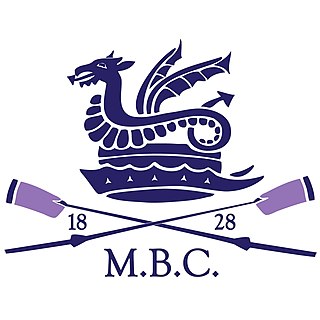
David John Moore Cornwell, better known by his pen name John le Carré, was a British author, best known for his espionage novels, many of which were successfully adapted for film or television. "[One] of the greatest novelists of the postwar era", during the 1950s and 1960s he worked for both the Security Service (MI5) and the Secret Intelligence Service (MI6). He is considered to have been a "sophisticated, morally ambiguous writer".

Magdalene College is a constituent college of the University of Cambridge. The college was founded in 1428 as a Benedictine hostel, in time coming to be known as Buckingham College, before being refounded in 1542 as the College of St Mary Magdalene.

The Pepys Library of Magdalene College, Cambridge, is the personal library collected by Samuel Pepys which he bequeathed to the college following his death in 1703.

Thomas Nevile was an English clergyman and academic who was Dean of Peterborough (1591–1597) and Dean of Canterbury (1597–1615), Master of Magdalene College, Cambridge (1582–1593), and Master of Trinity College, Cambridge (1593–1615).

Edward Rainbowe or Rainbow (1608–1684) was an English academic, Church of England clergyman and a noted preacher. He was Master of Magdalene College, Cambridge, Vice-Chancellor of the University of Cambridge and Bishop of Carlisle.

The Ascension Parish Burial Ground, formerly known as the burial ground for the parish of St Giles and St Peter's, is a cemetery off Huntingdon Road in Cambridge, England. Many notable University of Cambridge academics are buried there, including three Nobel Prize winners.

Magdalene Boat Club (MBC) is the rowing club for members of Magdalene College, Cambridge. The foundation of the MBC in 1828 coincided with the 400th anniversary of the Monk's Hostel or Buckingham College - the original foundation of Magdalene.
John Duport was an English scholar and translator.
Richard Clayton was an English churchman and academic, Master of Magdalene College, Cambridge and St John's College, Cambridge and Dean of Peterborough.
Richard Howland (1540–1600) was an English churchman and academic, Master of Magdalene College, Cambridge, and of St John's College, Cambridge, and bishop of Peterborough.
George Neville-Grenville, named George Neville until 1825, was Dean of Windsor in the mid nineteenth century.
Arthur Stanley Ramsey was a British mathematician and author of mathematics and physics textbooks. He was Fellow of Magdalene College, Cambridge, and its President from 1915–52.
Roger Kelke (1524–1576) was an English churchman and academic, a Marian exile and Master of Magdalene College, Cambridge from 1558 and Archdeacon of Stow from 1563.
Allen Beville Ramsay was an English academic and Latin poet. He was Master of Magdalene College, Cambridge and Vice-Chancellor of the University of Cambridge.
Henry Smyth, D.D. was a 17th-century priest and academic.
The Hon. Barton Wallop was Master of Magdalene College, Cambridge from 1774 until 1781.
George Sandby, D.D. was an 18th-century English priest and academic.
Gabriel Quadring, D.D. (1640-1713) was a priest and academic.
Latimer Neville, 6th Baron Braybrooke, styled the Hon. Latimer Neville until 1902, was a British peer, clergyman and academic, for half a century Master of Magdalene College, Cambridge.
This page is based on this
Wikipedia article Text is available under the
CC BY-SA 4.0 license; additional terms may apply.
Images, videos and audio are available under their respective licenses.







